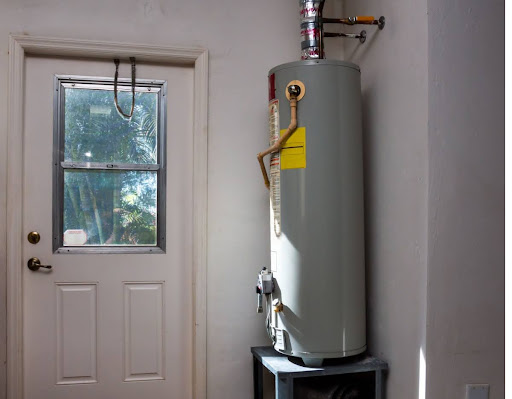Being a homeowner comes with its fair share of surprises, but the more you can stay ahead of the game, the smoother life tends to go. You don’t wait until your car engine fails to check the oil, and you shouldn’t wait for your basement to flood before thinking about your water heater, either.
So, how long should a water heater last? And how do you know when it’s time for a replacement? Let’s take a deep dive into the average lifespan of a water heater, the signs of wear and tear, and how smart maintenance can stretch its usefulness.
The Average Lifespan of a Water Heater
Let’s start with the big question: how long should a water heater last? On average, most water heaters hold up between eight to 12 years, depending on several factors like usage, water quality, and maintenance habits.
Water Heater Type
The average lifespan of a water heater can also vary based on your unit type. Tankless models typically last longer — sometimes up to 20 years — but traditional tank-style water heaters usually fall within that eight to 12-year range.
Water Heater Performance
Don’t just go off the calendar. You’ll also want to keep an eye on how your water heater is performing. If you’re noticing strange noises, rust-colored water, or inconsistent temperatures, it may be time for a closer look.
What Affects Water Heater Longevity?
There’s no single answer to how long a water heater should last. Ultimately, several factors can influence its longevity.
Water Quality
Hard water that’s rich in minerals like calcium and magnesium can be tough on a water heater. Over time, mineral buildup causes sediment to collect at the bottom of the tank, leading to inefficiency and possible damage to the heating element.
Usage Habits
The more hot water your household uses — think long showers, washing machine cycles, and loads of dishes — the harder your water heater has to work. Households with big families typically put more strain on their unit, which may shorten its life expectancy.
Maintenance
Staying on top of water heater maintenance can help prevent problems like rust, corrosion, and sediment buildup. Regular inspections, flushing the tank, and replacing the anode rod when needed can stretch out how long a water heater should last.
Signs Your Water Heater May Be Nearing the End
Knowing the average lifespan of a water heater is helpful, but knowing the signs of trouble is even more important. Here are a few red flags that your unit may be reaching the end of its life expectancy:
Inconsistent Hot Water
If your water takes forever to heat up or doesn’t stay warm, that’s a red flag. A failing heating element or thermostat could be to blame, or it might be time for a new unit.
Strange Noises
Popping or rumbling sounds are more than just annoying — they could mean sediment has built up inside your tank. Over time, that sediment hardens and makes your system work harder, leading to more wear and tear.
Discolored Water
Rusty or cloudy water coming from the tap could signal corrosion inside your storage tank or pipes. If left unchecked, this can lead to leaks.
Leaks Around the Base
A leaking valve or puddles around the base of your unit usually point to metal fatigue and possible tank failure. If your unit is older, it might not be worth repairing.
Visible Rust or Corrosion
Check the outside of your tank — especially near the anode rod and pressure relief valve. Visible rust could be a sign it’s nearing the end.
Repair vs. Replace: What Makes Sense?
If your unit is still fairly new and you’re having issues like a broken pilot light or thermostat, a water heater repair might do the trick. However, for older systems showing signs of corrosion, leaks, or pressure problems, it’s probably time to say goodbye.
Checking the serial number can help you determine your unit’s age if you’re unsure. Most manufacturers include the year in the number itself.
How to Choose a New Water Heater
If you’ve decided to replace your water heater, the next step is figuring out what kind you need. There’s a lot to consider — tank size, fuel type (such as gas or electricity), and household demand.
You’ll also want to think about energy efficiency and features like expansion tanks, which help control pressure and protect your pipes. A well-matched unit can make a big difference in comfort and savings.
Do you need help? All Seasons Heating & Cooling makes water heater installation simple and stress-free.
Install a New Water Heater in Midland, MI, Today!
If your water heater is creeping up in age or showing signs of trouble, don’t wait for the cold water surprise. Call the professionals at All Seasons Heating & Cooling. We’re here to assist you with reliable repairs, regular maintenance, or brand-new installation.
We’ll help you choose the right option for your home, your family, and your peace of mind. Schedule a service today in Midland, MI, or one of the surrounding areas!

